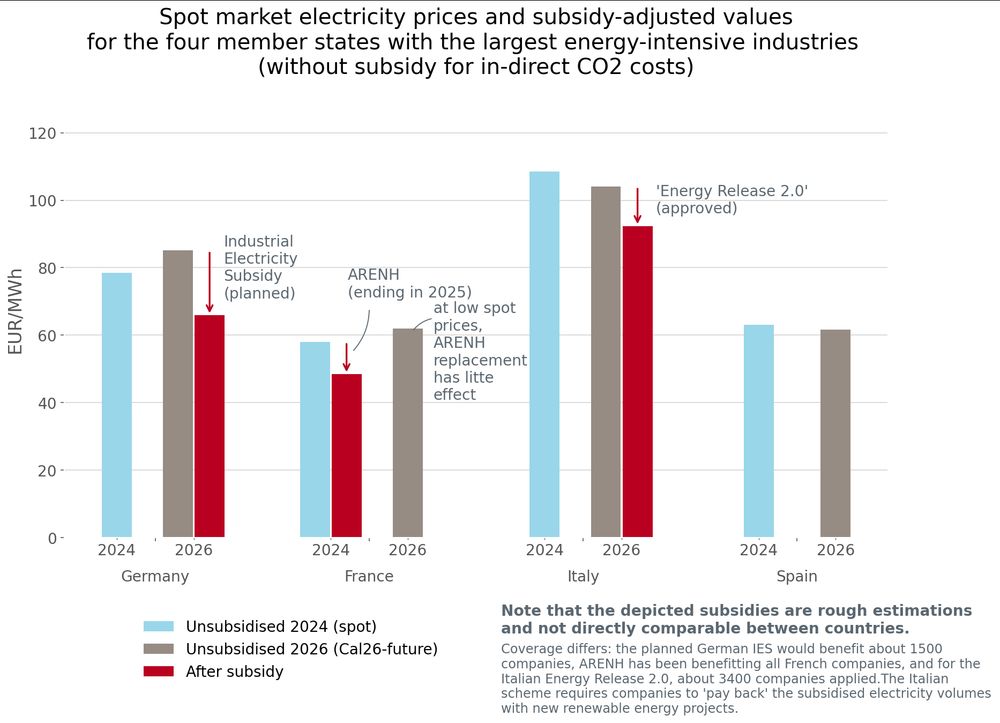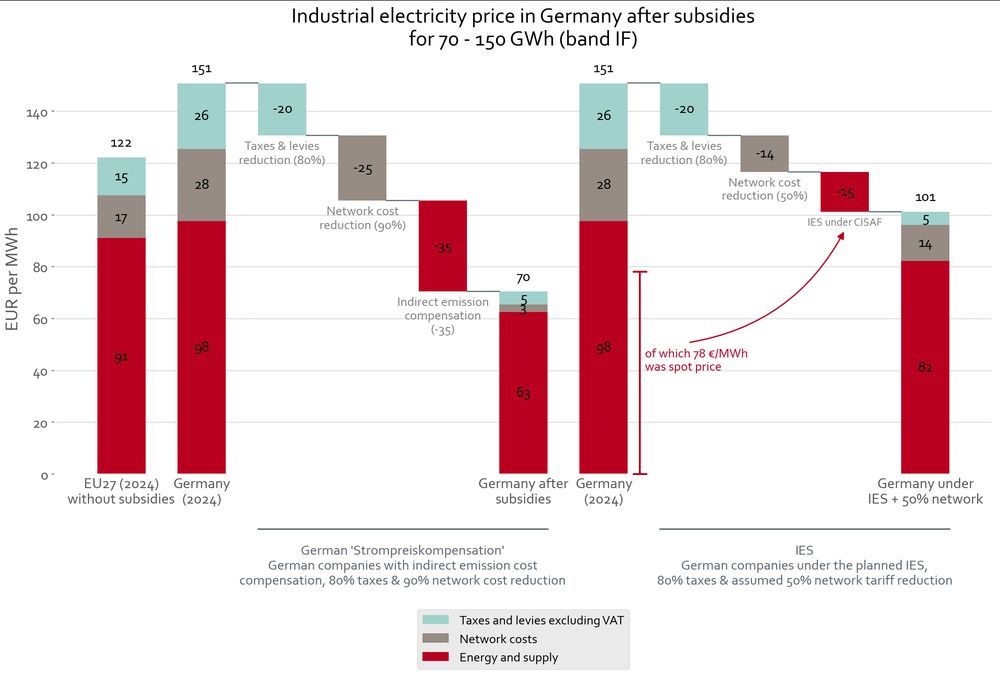Noch ist unklar, wie - und entsprechend gibt es noch die Chance, dass die richtigen Maßnahmen kommen, IMO
Noch ist unklar, wie - und entsprechend gibt es noch die Chance, dass die richtigen Maßnahmen kommen, IMO
More political capital must be invested in implementing the Clean Industrial Deal forcefully, which the EU currently isn't on track: tinyurl.com/ind-deal (20/23)

More political capital must be invested in implementing the Clean Industrial Deal forcefully, which the EU currently isn't on track: tinyurl.com/ind-deal (20/23)
An EU-wide mechanism should subsidise only strategically critical products, identified by an independent EU body. Subsidies should be allocated via auctions at EU-level, to avoid subsidy races and keep costs low. (18/23)
An EU-wide mechanism should subsidise only strategically critical products, identified by an independent EU body. Subsidies should be allocated via auctions at EU-level, to avoid subsidy races and keep costs low. (18/23)
- economic competitiveness
- decarbonisation or
- resilience,
different tools are required. (16/23)
- economic competitiveness
- decarbonisation or
- resilience,
different tools are required. (16/23)
IESs apply broadly to electricity- and trade-intensive sectors — including biscuits, textiles and ceramics.
That’s not a strategic list.
It also doesn't offer sufficiently high incentives to actually keep production in the EU. (14/23)
IESs apply broadly to electricity- and trade-intensive sectors — including biscuits, textiles and ceramics.
That’s not a strategic list.
It also doesn't offer sufficiently high incentives to actually keep production in the EU. (14/23)
Germany (and other current EU industrial hubs) won't have low-cost electricity, in intl. comparison. This means many energy-intensive companies will remain unviable even 5 or 10 years from now.
These subsidies buy time; they don’t solve structural cost problems. (13/23)
Germany (and other current EU industrial hubs) won't have low-cost electricity, in intl. comparison. This means many energy-intensive companies will remain unviable even 5 or 10 years from now.
These subsidies buy time; they don’t solve structural cost problems. (13/23)
Why? ➡️ They help climate (a little), but have limited benefits for the economy and resilience: (11/23)
Why? ➡️ They help climate (a little), but have limited benefits for the economy and resilience: (11/23)
➡️ As I (very roughly) calculate, the German subsidy won’t dramatically undercut competitors - because German prices are high to start with. (10/23)

➡️ As I (very roughly) calculate, the German subsidy won’t dramatically undercut competitors - because German prices are high to start with. (10/23)


